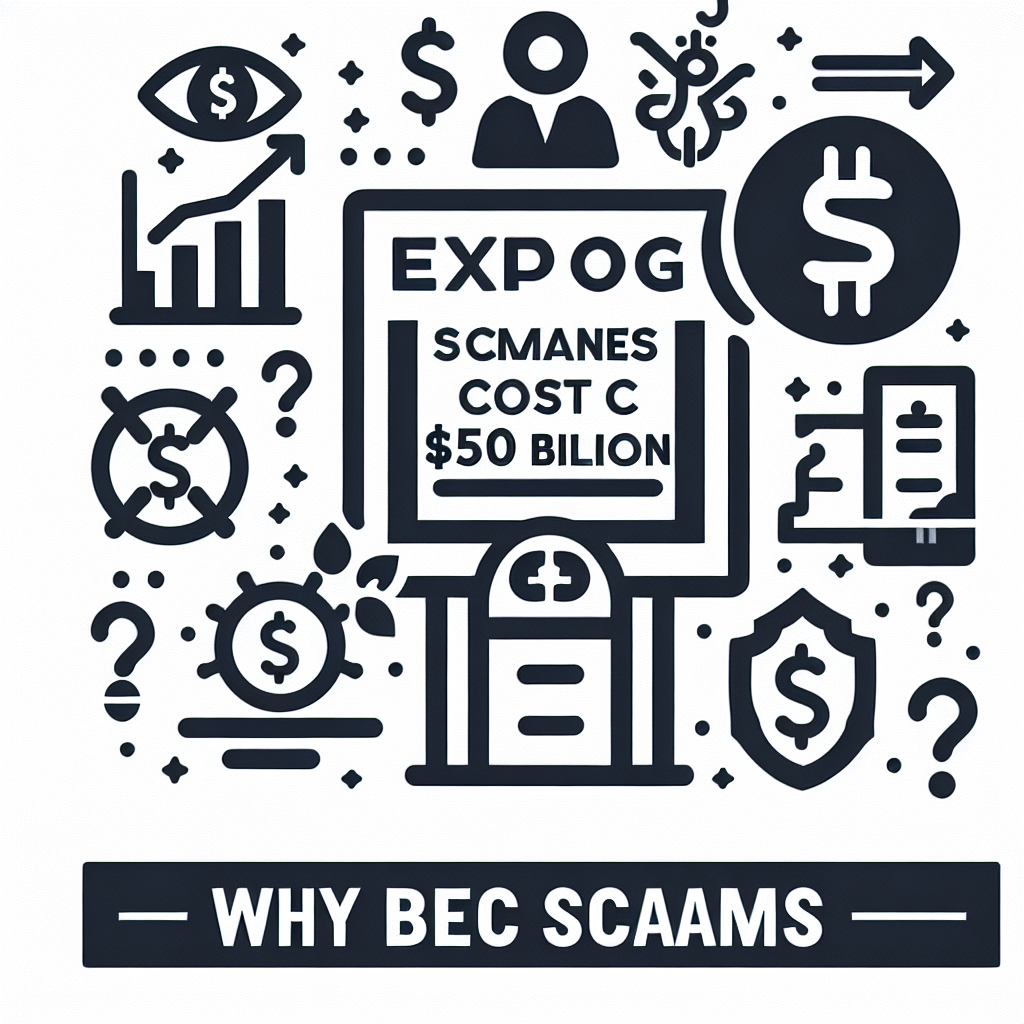
Business Email Compromise (BEC) scams have now been reported to cost organizations worldwide a staggering $50 billion. The figure keeps climbing, and many attacks go unreported, meaning the real impact is likely even higher.

A BEC attack tricks recipients into believing an email comes from a trusted source—often an executive or partner—to steal money or confidential data.
The FBI reports that BEC fraud has resulted in $50 billion in losses, a $7 billion jump from the previous year, with a 17 % increase observed between 2021 and 2022.
Nearly 300,000 incidents have been logged across 177 countries and all 50 U.S. states over the past nine years.
Many organizations don’t report attacks, so the $50 billion figure likely underrepresents the true financial damage.
Verify the sender’s address before acting on requests, use two‑factor authentication for sensitive actions, and educate staff about social‑engineering tactics.
DMARC authenticates the domain in the email’s From: line. When enforced, it blocks spoofed messages, dramatically cutting the chance of successful BEC attempts. Learn more about DMARC enforcement with Palisade’s Email Security Score.
Only 43 % of firms in the banking and financial sector have moved to DMARC enforcement, leaving many vulnerable.
Yes—implementing DKIM, SPF, and BIMI alongside DMARC creates a layered defense. Check DKIM health, review SPF records, and add BIMI branding for stronger protection.
Contact your bank immediately to attempt fund recovery, and file a complaint with the FBI’s Internet Crime Complaint Center (IC3).
Enforcing DMARC can prevent costly fraud with minimal ongoing effort, especially when automated tools handle monitoring and reporting.
Sign up for a free Palisade Monitor account to gain visibility into who is sending email on your behalf and begin moving toward full enforcement. Schedule a demo with Palisade to see the solution in action.
Explore Palisade’s blog, webinars, and whitepapers for deeper insights into protecting your organization from email‑based fraud.